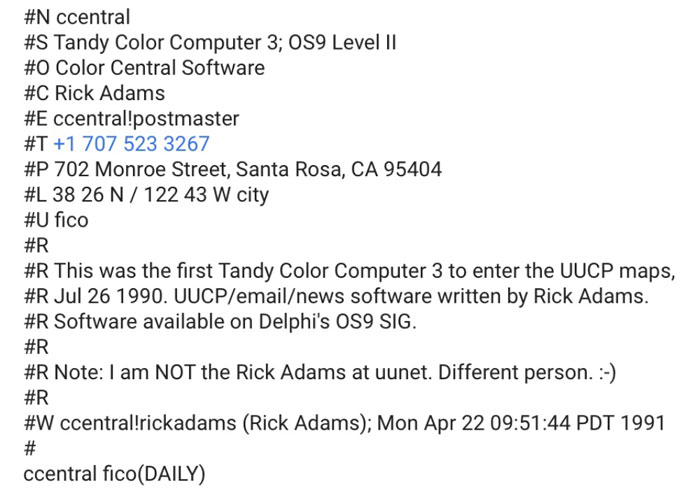A Visitor from Microsoft
This sounds like a lot of shameless bragging, really, but I swear this did happen to me exactly like this, and this tale is just too amusing to pass up.
In the wild and woolly days of the early computer industry, you’d often run across a corporate culture that looked down upon any tech not developed in-house.
People would refer to this as “NIH syndrome,” NIH being an acronym for “Not Invented Here.”
Later this trend reversed as some of the bigger players in the industry began to emerge. “Nobody ever got fired for buying IBM,” as the old saying went.
That’s how it was when I started working for West Publishing, only for them, the ultimate was Microsoft. If it wasn’t developed at Microsoft, it wasn’t worth anything.
Microsoft had just started to develop products for the then-fledgling World Wide Web, and West was eager to implement anything they came up with. An off-the-shelf product from Microsoft instilled much more confidence than something cobbled together by some cowboy coder.
After all, the web had just been invented. What could some hoary old geezer like me possibly know about it?
But Microsoft, now… that was different. Those guys were the big time! And management had convinced a Microsoft project manager to join us from the exalted heights of Microsoft’s Redmond, Washington headquarters to give us advice on our Internet projects!
We were all assembled to meet this holy personage on the appointed day of his arrival, and sternly warned to be on our best behavior when we were introduced.
One by one, he was introduced to the members of our team, with myself at the end of the line.
But when they got to me, something unusual happened.
“Rick Adams? The Rick Adams?”
Who the what now? “Uh, yes?”
“The guy who made The Colossal Cave Adventure Page?” He was referring to a popular website I’d developed quite a while back.
Ah, so that’s it. “Yes.”
“I’ve always wanted to meet you! May I shake your hand?”
Everyone’s jaws dropped.
What they hadn’t realized was that the Internet had actually been born years earlier than the invention of the web.
And due to an accident of fate, the computers at my previous job had been connected to the Internet in its infancy, when it was a mere handful of educational and military sites. And I was the system administrator there.
And it was at that time, two years earlier, that I had developed software to interface my home computer with the Internet.
So when I heard West was looking to interface their Westlaw database of legal opinions with the web, I got right to work.
“We can do it by interfacing with the legacy database the same way our standalone client software does it, and then gateway that to the web,” I said, showing my proof of concept to my project manager.
She shot that down right away: “That’s a pretty demo, but that won’t work.”
“Uh, it did work. This is not a slide show; I just retrieved a legal cite from Westlaw. Want me to pull up another one?”
There was a momentary silence, then… “Uhhh, stay there; I’ll be right back.”
She returned with her supervisor. “Show him that thing you just showed me.”
The rest of the day saw a series of visitors trooping into my cube, each one higher-ranking than the last. The day ended with a demonstration in front of the CTO.
“Yeah, we’re doing that,” he proclaimed.
So we got a team together, got that done, and passed it on to corporate, telling them that as soon as they gave us requirements, we’d make that into a product.
We didn’t hear back from them until one day they came down in a tizzy. “Where’s that product?” they wanted to know.
“Where’s the requirements we asked for?”
It turned out that our main competitor had just released a web interface to their own database of legal citations, beating us to market and leaving us flat-footed.
“Requirements? I’ll give you requirements. Make it just like theirs, only better!”
Well, then.
But there was one more wrinkle awaiting us.
West Publishing was on an acquisition spree, and one of the companies they had swallowed up was a scrappy little outfit in Atlanta, Georgia.
This small group fancied themselves quite the hotshot coders (no shade, they were probably quite good), and thought of themselves as West’s “skunk works” for new products.
And, unaware of our efforts, they had independently designed their own web gateway to the Westlaw database, just like ours.
So then management assigned both our group and “the Atlanta team” the task of writing reports explaining why each of our respective projects was the better one, to be handed to an independent party for his final report to the higher-ups.
Yeah, this is how things are done in a big company like West Publishing.
Our adversary’s main argument was that our solution did not use “the WestPro protocol” to talk to the legacy database. Well, we had a protocol, sure, just like they had. It wasn’t any better or worse than theirs; we just didn’t give it a fancy name.
I’m sure going with either side would have been fine; it was just a stupid, unnecessary duplication of effort and a delay for the product to get to market. But finally the decision came down that West was going to go with our project, not theirs.
Hooray.
Management was pleased. The day this was announced, they came down from their exalted C-suites to grant us the rest of the day off.


